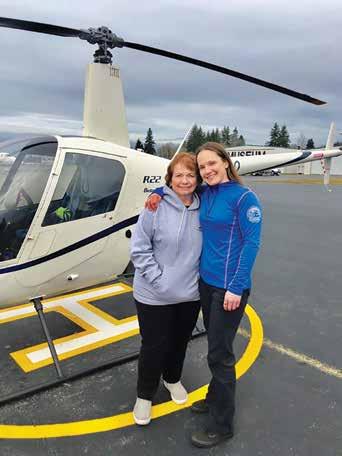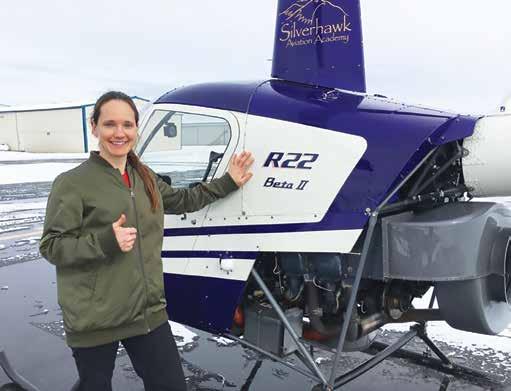
3 minute read
Women forge paths in non-traditional programs
By Kasha Stoll
Physical stature and strength. Tight finances. Long-held gender stereotypes.
Traditional barriers are only minor obstacles to the increasing number of women signing up for nontraditional courses at Lake Superior College in Duluth. Industries are actively seeking to diversify their workforce.
“There seem to be a lot more career opportunities than ever before for women in several sectors,” said Daniel Fanning, vice president of institutional advancement and external relations. “Lake Superior College is being very proactive, intentional and strategic about encouraging and recruiting women, and students of color, in programs where they haven’t always been overly represented, including manufacturing, aviation and firefighting.”
Firefighting
As the only two women in the LSC firefighting program, Madeline Schmitz and Hannah Bos joke that they have more than 20 brothers.
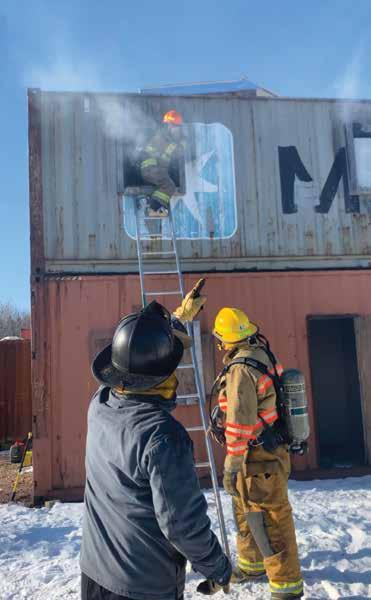
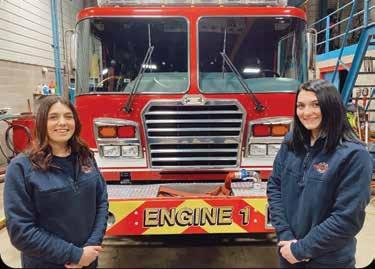
“A huge benefit to the career is the family aspect,” Schmitz said. “There is a fire station vibe at campus, and we are all super close. Hannah and I connected quickly. We go to the gym and go running together. And the guys are great. I went to get my nails done recently, and the guys wanted to help with the color. (Several) of them said I should get fire-engine red with sparkles.”
All joking aside, though, the women said their male instructors and “brothers” are very supportive of their career choice.
Schmitz was studying to be a physical therapy assistant and took an EMT course on a whim. She said two of her instructors pulled her aside and said: “We think you are on the wrong career path and you should come to fire.”

She listened to their advice and has never looked back. There are definite challenges, though.
“Physical activity is probably the No. 1 challenge,” Bos said. “You have to be very, very fit. If you are not healthy and you go into a hot environment …”
“It’s physical for the guys, too,” Schmitz said. “They come out dripping in sweat. But it is more than just being healthy. You have to be extremely hydrated. That turnout gear is so hot, you put it on, and you start sweating. That is something I had to get used to doing. I have to be so cautious and make sure I drink so much water every day.”
While some of the physical tasks are difficult, Schmitz and Bos are not deterred. They just need practice and their “family.”
“We are still learning the mechanics,” Schmitz said. “Right now, we can force a door, no problem. But not when we first started. It wasn’t a fluid motion.”
“You work as a team in the fire service, so if you need help, it is there,” Bos said.
Both women want to move to a forested area and fight wildland fires while they are young and relatively free of responsibilities. They may transfer to a structural fire unit later.
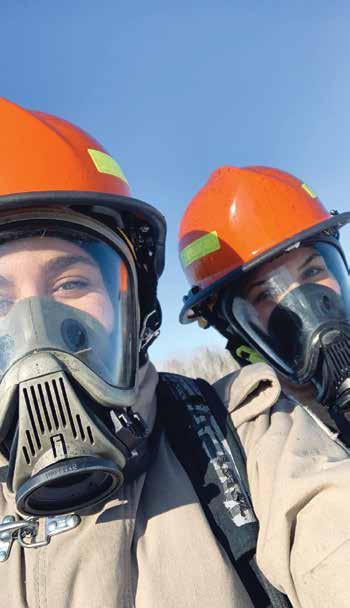
Aviation
Astrid Gilbert worked at a car dealership for years but knew she wanted to do something more meaningful. She mulled over possible career choices and was intrigued with the idea of being a helicopter pilot for medical evacuation.
“It sounded like a cool job, but I thought it was too far out of my reach,” said Gilbert, a helicopter flight instructor at the LSC Center for Advanced Aviation. “I didn’t have a (military) service background, and I thought I wouldn’t be able to afford it. But then in 2015, something happened in my life, and I realized life is too short to let your dreams fizzle away.”
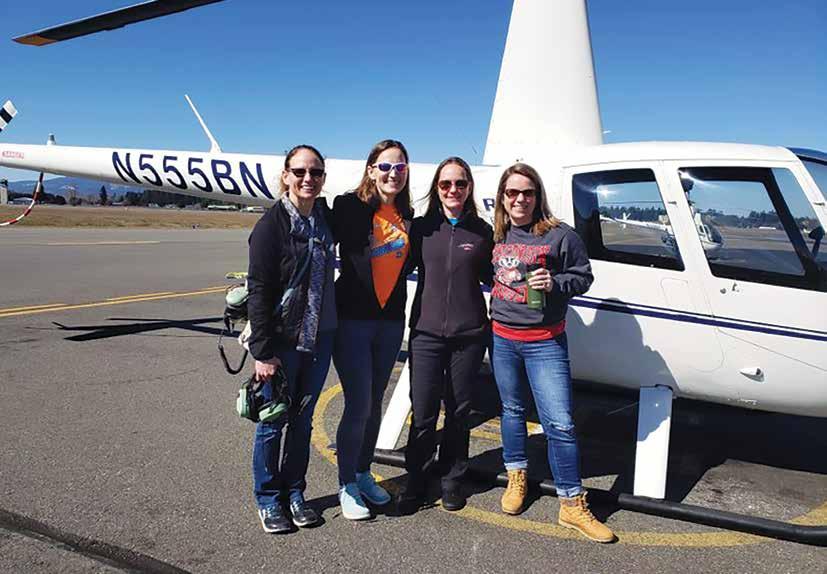
Gilbert found a training facility in Florida and slowly worked her way through the course. It took a year to get her private pilot certificate, but by then she was completely hooked. She moved to Idaho and continued her education. She taught flight lessons in Washington and then joined the LSC staff in August 2020.
The challenges with being a pilot have nothing to do with gender and everything to do with attitude, Gilbert said.
“You have to be willing to adapt and work really hard,” she said. “You are always learning. The education never ends when you become a pilot.”
Gilbert said her objective is to give back to the community. She may eventually become a pilot for a fire department, search-and-rescue team or law enforcement.
The job perks are incredible, though.
Gilbert has flown a helicopter over mountains, forests, snowcovered fields and even a pod of orcas.
“When your office is the cockpit of a helicopter, that is pretty damn cool,” she said. D
